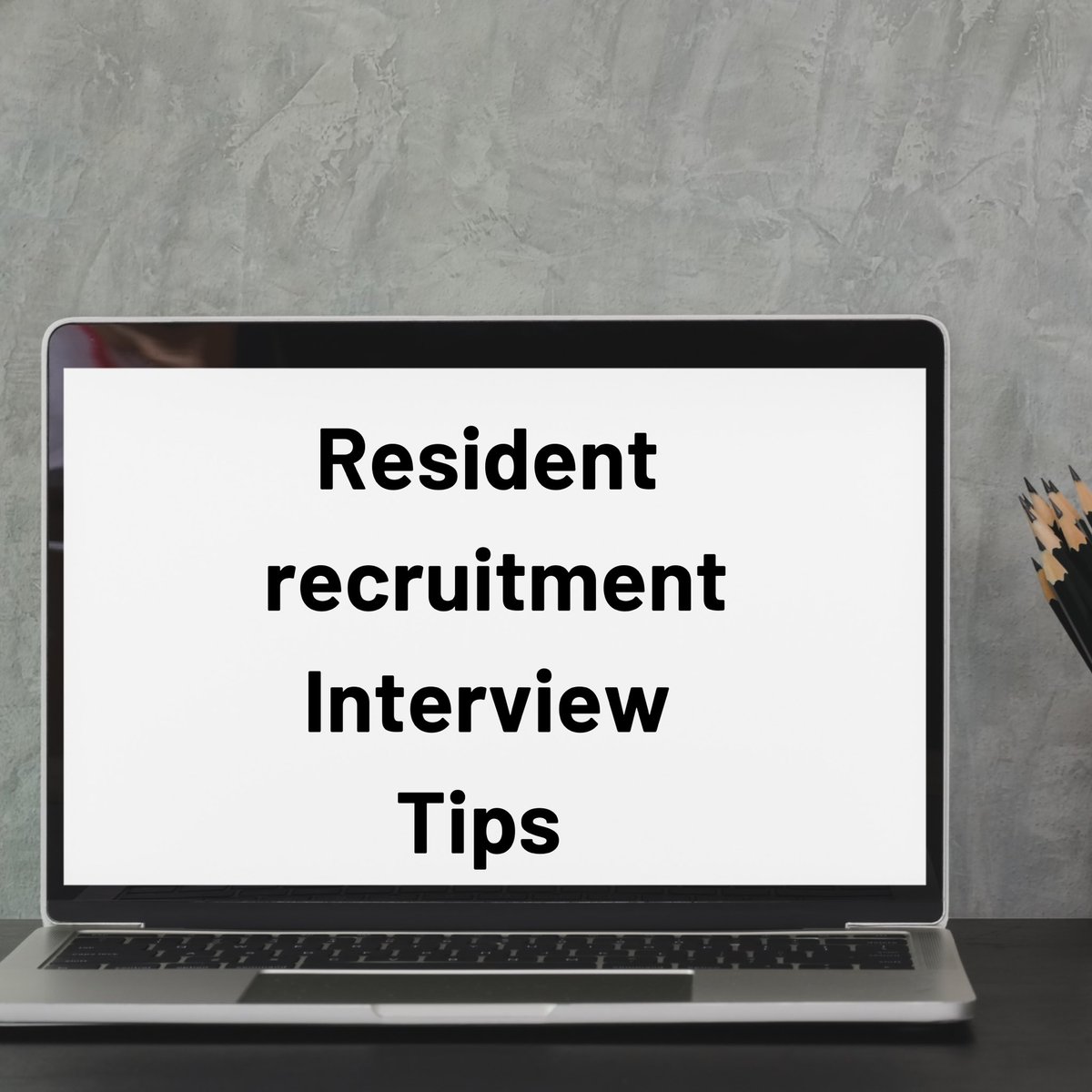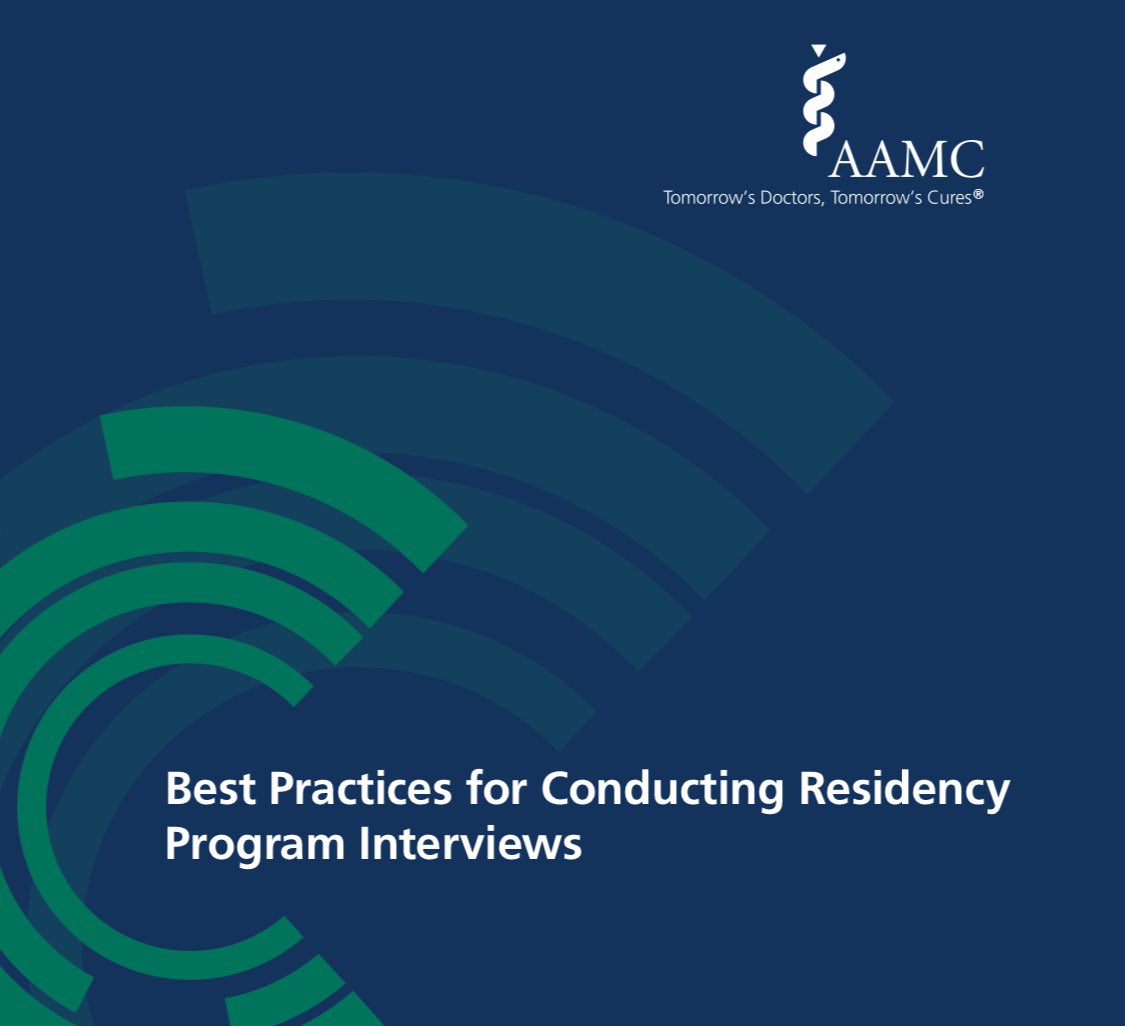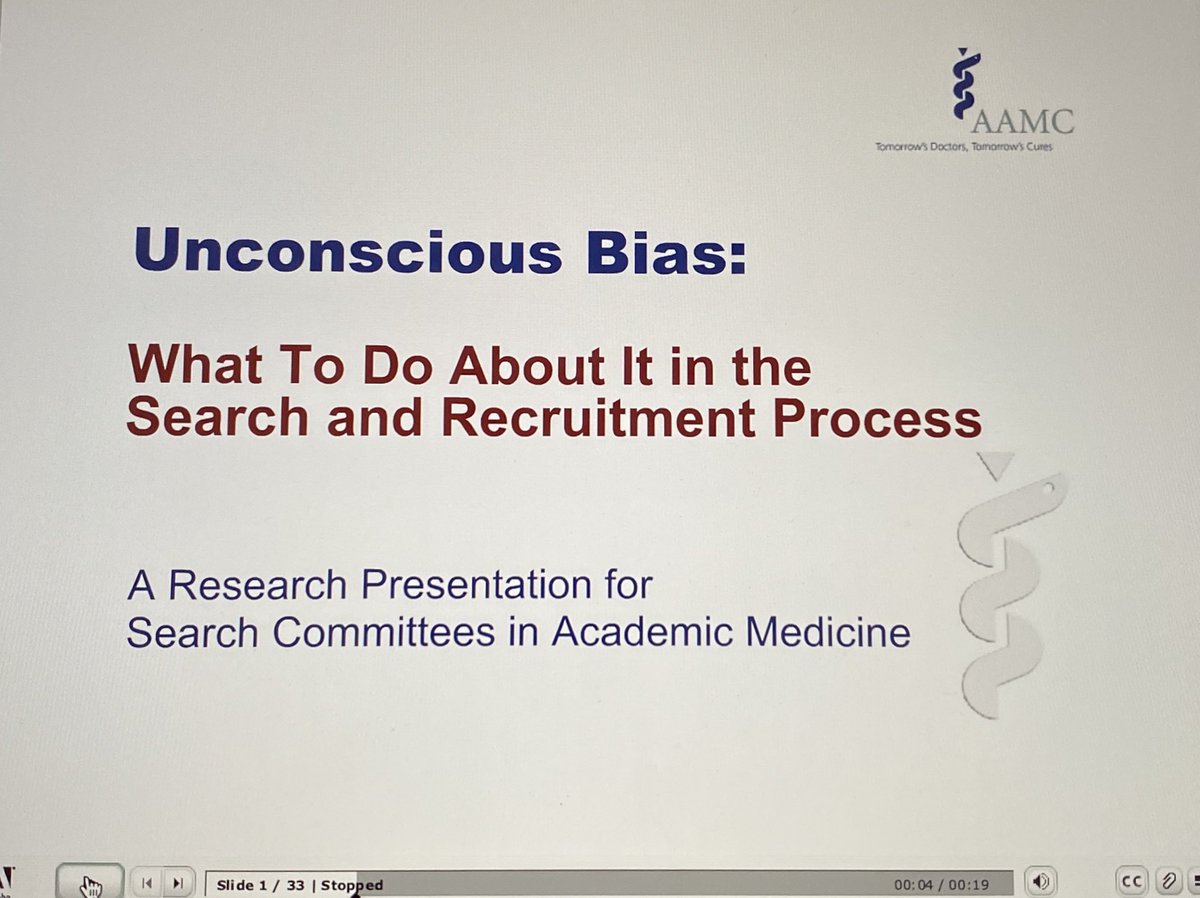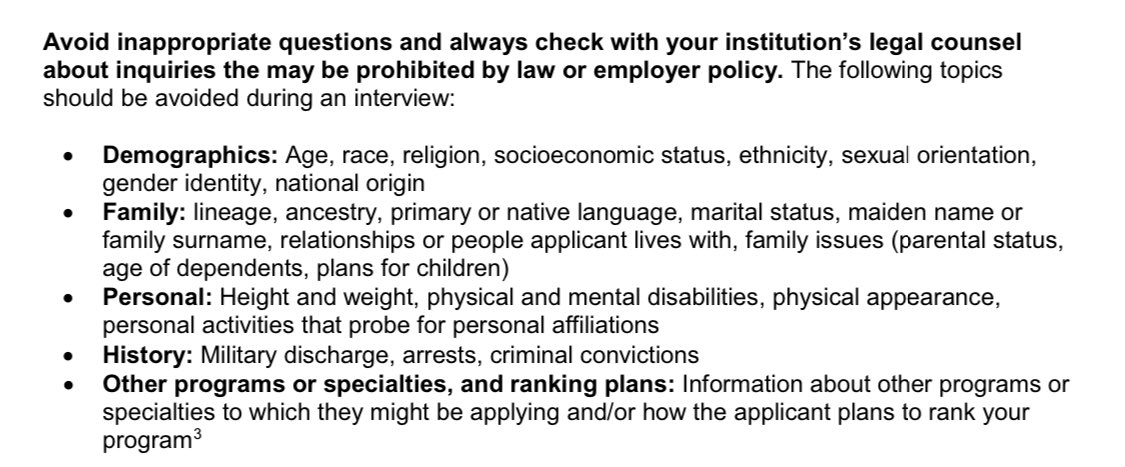#Tweetorial on best practices for #residency interviews
 This year there will be some nuanced challenges of virtual interviewing
This year there will be some nuanced challenges of virtual interviewing
So it will be even more important to be intentional about #interview practices
#MedEd #MedTwitter #MedStudentTwitter
1/
 This year there will be some nuanced challenges of virtual interviewing
This year there will be some nuanced challenges of virtual interviewing
So it will be even more important to be intentional about #interview practices
#MedEd #MedTwitter #MedStudentTwitter
1/
Since the pros/cons of virtual interviews has been written extensively by others including @jbcarmody in his blog post below, I won’t cover it here
2/ https://twitter.com/jbcarmody/status/1259945966796496897
2/ https://twitter.com/jbcarmody/status/1259945966796496897
What do we hope to learn about applicants during interviews?
 Get to know the applicant beyond what’s in the file
Get to know the applicant beyond what’s in the file
 Part of the holistic review
Part of the holistic review
 Communication skills
Communication skills
 Professional interests
Professional interests
 Goals, values, aspirations
Goals, values, aspirations
AND give them a chance to learn about the program
3/
 Get to know the applicant beyond what’s in the file
Get to know the applicant beyond what’s in the file Part of the holistic review
Part of the holistic review  Communication skills
Communication skills Professional interests
Professional interests  Goals, values, aspirations
Goals, values, aspirations AND give them a chance to learn about the program
3/
The @AAMC provides guidance on best practices for residency interviews
 Structured interviews
Structured interviews
 Standardization of interview evaluations
Standardization of interview evaluations
 Mitigate unconscious biases
Mitigate unconscious biases
4/
https://www.aamc.org/system/files/2020-05/best%20practices%20for%20conducting%20residency%20program%20interviews.pdf
 Structured interviews
Structured interviews  Standardization of interview evaluations
Standardization of interview evaluations Mitigate unconscious biases
Mitigate unconscious biases4/
https://www.aamc.org/system/files/2020-05/best%20practices%20for%20conducting%20residency%20program%20interviews.pdf
Structured interview questions using behavioral/situational questions will:
 Validity
Validity
 Reliability
Reliability
 Fairness
Fairness
of the interview process and can allow you to gauge skills beyond accomplishments on CV such as:
 Communication skills
Communication skills
 Conflict management
Conflict management
 Teamwork
Teamwork
5/
 Validity
Validity Reliability
Reliability Fairness
Fairness of the interview process and can allow you to gauge skills beyond accomplishments on CV such as:
 Communication skills
Communication skills Conflict management
Conflict management  Teamwork
Teamwork 5/
What does it look like in practice?
Ask:
 Describe a time when a team you were part of didn’t work well
Describe a time when a team you were part of didn’t work well
 Describe a time you had a had to deliver unpleasant news
Describe a time you had a had to deliver unpleasant news
Expect applicant to:
Describe Situation

State their Action

Review the Outcome/any insights they had
6/
Ask:
 Describe a time when a team you were part of didn’t work well
Describe a time when a team you were part of didn’t work well Describe a time you had a had to deliver unpleasant news
Describe a time you had a had to deliver unpleasant newsExpect applicant to:
Describe Situation

State their Action

Review the Outcome/any insights they had
6/
Standardization of interview evaluations to ensure consistency between interviewers:
 Rating scale anchored w/ examples of components of responses for each level
Rating scale anchored w/ examples of components of responses for each level
 Train faculty on how to rank
Train faculty on how to rank
 Provide a range in scale that allows you to differentiate applicants
Provide a range in scale that allows you to differentiate applicants
7/
 Rating scale anchored w/ examples of components of responses for each level
Rating scale anchored w/ examples of components of responses for each level  Train faculty on how to rank
Train faculty on how to rank Provide a range in scale that allows you to differentiate applicants
Provide a range in scale that allows you to differentiate applicants 7/
Common rating errors that should be addressed when training interviewers
 If you aren’t aware of these, you won’t know to avoid them!
If you aren’t aware of these, you won’t know to avoid them!
 If you aren’t aware of these, you won’t know to avoid them!
If you aren’t aware of these, you won’t know to avoid them!
Mitigate unconscious biases by providing interviewers w/training
A good webinar by the AAMC for recruitment (you need adobe to watch)
8/
https://www.aamc.org/video/t4fnst37/index.htm
A good webinar by the AAMC for recruitment (you need adobe to watch)
8/
https://www.aamc.org/video/t4fnst37/index.htm
A reminder to avoid illegal questions during interviews
 Think it doesn’t happen, think again.
Think it doesn’t happen, think again.
In a study from 2016, 90% of the surveyed students recalled having at least one of these types of questions asked during interviews
9/
https://www.ncbi.nlm.nih.gov/pmc/articles/PMC2951770/
 Think it doesn’t happen, think again.
Think it doesn’t happen, think again. In a study from 2016, 90% of the surveyed students recalled having at least one of these types of questions asked during interviews
9/
https://www.ncbi.nlm.nih.gov/pmc/articles/PMC2951770/
Best practices for residency interviews:
 Employ standard practices
Employ standard practices
 Use structured interviews that evaluate behavior or skill set
Use structured interviews that evaluate behavior or skill set
 Train faculty on ranking system
Train faculty on ranking system
 Implicit bias training for interviewers
Implicit bias training for interviewers
 Goal is to get to know applicant beyond file
Goal is to get to know applicant beyond file
10/
 Employ standard practices
Employ standard practices Use structured interviews that evaluate behavior or skill set
Use structured interviews that evaluate behavior or skill set  Train faculty on ranking system
Train faculty on ranking system  Implicit bias training for interviewers
Implicit bias training for interviewers Goal is to get to know applicant beyond file
Goal is to get to know applicant beyond file
10/

 Read on Twitter
Read on Twitter








